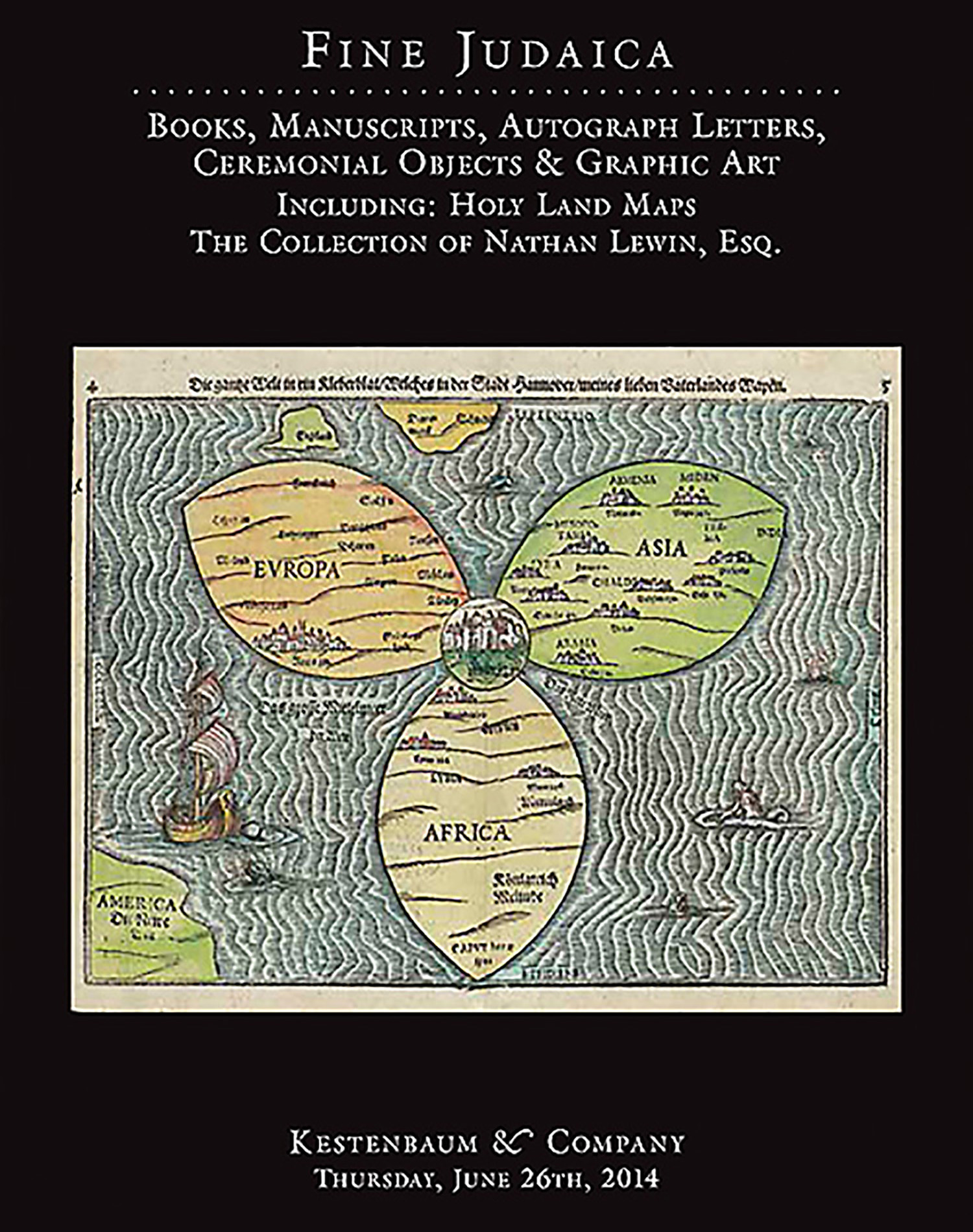Lieutenant Colonel Aaron Bennett Myer. Group of three Autograph Letters Signed, all written to his wife, Julia.

AUCTION 62 |
Thursday, June 26th,
2014 at 1:00
Fine Judaica: Books, Manuscripts, Autograph Letters, Graphic and Ceremonial Art
Lot 167
(AMERICAN JUDAICA).
Lieutenant Colonel Aaron Bennett Myer. Group of three Autograph Letters Signed, all written to his wife, Julia.
Centerville, Virginia and Headquarters of the 125th New York Volunteers: October 15th and 17th, 1863 and April 28th, 1864
Est: $2,000 - $3,000
Born in Hudson, New York, Aaron Bennett Myer (1824-64) was a member of the 125th New York Volunteer Infantry Regiment during the Civil War. He fought in the Battle of Gettysburg (July 1-3, 1863), a turning point in the Civil War which ended Lee’s invasion of the North - and in which Myer was promoted from Major to Lieutenant Colonel. While temporarily in command, Myer led his regiment at the Battle of the Wilderness (May 5-7, 1864) where he was mortally wounded. Thousands of men burnt to death as the woods in which they were fighting caught fire.
Written between these two infamous battles, the present letters from Myer are all to his wife Julia (nee Perkins, of Hartford, CT), living in Troy, NY. Myer describes surprise attacks; being struck by an English ‘Minie Ball’ - a type of rifle bullet; “the most miserable scene I ever witnessed” - that of six deserters being executed; his meeting a young lady who gave him green apples and a towel “now I know you will not be jealous;” his injured horse Frank, and “reasons to be thankful to a Divine power.” In the third letter Myer speaks of receiving letters from wives and mothers inquiring about their husbands and sons, many of whom it was suggested, enlisted while under the influence of drugs or alcohol. He closes “I remain Darling your Affectionate Husband.”
Accompanied By: A Typed transcription of all the letters and relevant passages from “The History of the 125th New York Volunteers.”
See S. Wolf, American Jew as Patriot, Soldier and Citizen (1895) p. 282.
